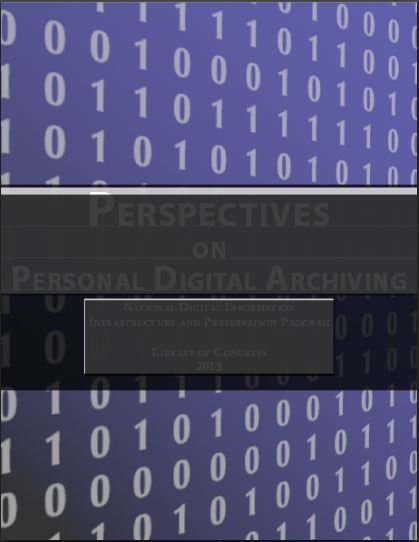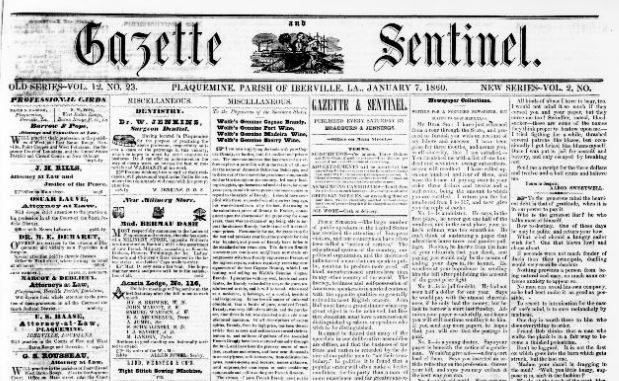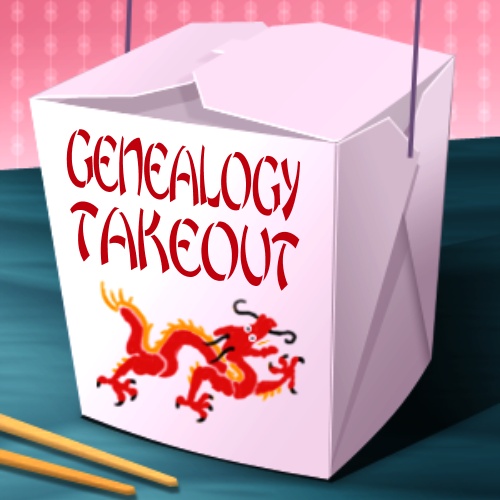by Lisa Cooke | Apr 6, 2013 | 01 What's New, Book Club, Inspiration, Organization, Photographs, Technology
Digital archiving is a hot topic for genealogists these days. Digitizing our family documents, photographs and other artifacts is one more way to help us preserve and share our heritage. Well, the Library of Congress wants to help us out! It has published a free e-book, Perspectives on Personal Digital Archiving.
 Scroll through the table of contents and you’ll see immediately why this book is valuable to family historians. There are lots of how-tos on preserving photos and other images: what file formats to use, cloud storage, adding digital captions, image resolution and more. There are sections on how everyday people are preserving their own digital archives. There’s even a great chapter on making sure your digital files live on after you pass away.
Scroll through the table of contents and you’ll see immediately why this book is valuable to family historians. There are lots of how-tos on preserving photos and other images: what file formats to use, cloud storage, adding digital captions, image resolution and more. There are sections on how everyday people are preserving their own digital archives. There’s even a great chapter on making sure your digital files live on after you pass away.
There’s an entire chapter on digitizing for the family historian. It gets to the heart of a genealogist’s file organization and storage needs: “Digital genealogy could result in a heap of text files (such as GEDCom files), image scans (most sites enable you to save an image in either JPEG, TIFF or PDF formats), audio files and video files. It’s best to follow the Library of Congress’s personal archiving advice, which is basically to:
1) organize everything within one collection folder
2) backup your collection onto several storage media in several different places
3) migrate your collection every five years or so to new storage media.
Don’t trust that a third-party genealogy service will always remain in business and keep your stuff safe forever. You should have your own copy handy and another copy backed up somewhere else.”
Great advice! Check out the entire book for yourself. And thanks to GenealogyBlog authors Leland and Patty Meitzler who blogged about this new e-book on their site.
by Lisa Cooke | Apr 5, 2013 | 01 What's New, Newspaper, Research Skills, Technology
Many of us know the fabulous Chronicling America newspaper site. Hosted by the Library of Congress, it catalogs all known U.S. newspapers and provides free access to more than six million digital newspaper pages. Well, this site keeps getting better. Content continues to grow and expand into other languages. And–something I personally love–the site will be easier to use on my iPad and iPhone!

Gazette Sentinel, Plaquemine, LA, Jan 20, 1860, Image from Chronicling America
First, let’s look at growing content: 130 new titles and 800,000 pages are new on the site. New titles include French and Spanish newspapers, like the French-English bilingual paper shown here.
‘We as genealogists can read as it were over our ancestors’ shoulders.’
Historical newspapers give readers a front-page view of American history. Recent additions to the collection echo popular feelings about presidential politics, slavery and westward expansion. We as genealogists can read as it were over our ancestors’ shoulders. Even if we don’t find them mentioned there specifically, we can learn a lot about their lives from newspapers of their day.
As I mentioned, Chronicling America now works better on mobile web devices. Specifically mentioned in a recent press release are “the ability to enlarge a portion of a newspaper page in a tablet or mobile phone device by using a pinch-to-zoom gesture. Also, a thumbnail navigator that appears on every page facilitates panning and zooming the image.” That’s a big improvement for users who have been frustrated at trying to use the site on the small screen!
Want to learn more about newspaper research for family historians–especially how to find newspapers online? Check out my book, How to Find Your Family History in Newspapers, available in paperback and as an e-book.
by Lisa Cooke | Apr 4, 2013 | 01 What's New, Technology
A long-lost brother and sister have cause to thank a seven-year old boy for helping to reunite them: through Facebook!
Recently the Waterloo-Cedar Falls (Iowa) Courier reported a story about a 66-year old Davenport man who had tried for years to find his sister. As an infant, Clifford Boyson was separated from his older sister Betty when they were placed in different foster homes in Chicago.
Th en Boyson’s landlord’s 7-year-old son found out about the lost sister. Young Eddie Hanzelin searched his mom’s Facebook account for Betty. When her name popped up, he saw the family resemblance.
en Boyson’s landlord’s 7-year-old son found out about the lost sister. Young Eddie Hanzelin searched his mom’s Facebook account for Betty. When her name popped up, he saw the family resemblance.
Clifford got in touch with Betty, now 70. She traveled from her home in Missouri to Davenport with her daughter and granddaughter for a tearful reunion with her brother. They look forward to getting to know each other after more than six decades apart.
Kudos to young Eddie for connecting these long-lost loved ones. And thanks to Genealogy Gems follower Steve Schell from Cedar Falls, Iowa for alerting us about this inspiring story! I love hearing how even a child can use social media to make meaningful family connections.
Eddie for connecting these long-lost loved ones. And thanks to Genealogy Gems follower Steve Schell from Cedar Falls, Iowa for alerting us about this inspiring story! I love hearing how even a child can use social media to make meaningful family connections.
by Lisa Cooke | Apr 3, 2013 | 01 What's New, Who Do You Think You Are?
 Many of us have been anticipating the return of Who Do You Think You Are?, the popular family history-themed television show. After three seasons, the WDYTYA? was canceled by NBC in 2012.
Many of us have been anticipating the return of Who Do You Think You Are?, the popular family history-themed television show. After three seasons, the WDYTYA? was canceled by NBC in 2012.
Reportedly, TLC has since picked up the show for a fourth season. Executive producer Lisa Kudrow told Craig Ferguson the show is still moving forward in an appearance on The Late Late Show on Feb. 20 (see the conversation here: it starts about 21 minutes into the show).
In recent weeks, reports have circulated that Kelly Clarkson has filmed an episode. A fan reported seeing her in Americus, Georgia and that they were shooting footage at Andersonsville National Historic Site.
Want to brush up on the first three seasons (and some WDYTYA trivia) before the return of the fourth? Find old episodes here on NBC.
Or learn more about about Kelly Clarkson at her website, which has so far been silent about any WDYTYA? filming, but celebrates her recent Grammy award and upcoming wedding–to the stepson of another WDYTYA? guest, Reba McEntire.
by Lisa Cooke | Apr 2, 2013 | 01 What's New, FamilySearch, Records & databases
Recently FamilySearch announced the addition of another 1.7 million indexed records and images to its free online Historical Records Collection. According to FamilySearch,  “Notable collection updates include the 13,110 images from the new Arizona, Maricopa, Mesa City Cemetery Records, 1885-1960, collection and the 105,745 indexed records and images from the New Zealand, Immigration Passenger Lists, 1855-1973, collection.”
“Notable collection updates include the 13,110 images from the new Arizona, Maricopa, Mesa City Cemetery Records, 1885-1960, collection and the 105,745 indexed records and images from the New Zealand, Immigration Passenger Lists, 1855-1973, collection.”
Whether you have roots in North Carolina or New Zealand, it may be worth it to check out their list of new records:
| Collection |
Indexed Records |
Digital Images |
| Australia, Tasmania, Miscellaneous Records, 1829-1961 |
0 |
8,191 |
| Austria, Upper Austria, Linz, Miscellaneous buy premature ejaculation medication online City Records, 1485-1894 |
0 |
20,711 |
| China, Collection of Genealogies, 1239-2010 |
0 |
120,111 |
| Dominican Republic, Miscellaneous Records, 1921-1980 |
0 |
29,543 |
| England, Northumberland, Miscellaneous Records, 1570-2005 |
0 |
3,897 |
| Italy, Bologna, Bologna, Civil Registration (Tribunale), 1866-1941 |
0 |
188,632 |
| Mexico, San Luis Potosí, Miscellaneous Records, 1570-1842 |
0 |
171,391 |
| Mexico, Yucatán, Civil Registration, 1860-2005 |
0 |
297,064 |
| New Zealand, Immigration Passenger Lists, 1855-1973 |
105,744 |
1 |
| Nicaragua, Civil Registration, 1809-2011 |
0 |
47,728 |
| Paraguay, Asunción, Cemetery Records, 1842-2011 |
0 |
11,121 |
| Peru, La Libertad, Civil Registration, 1903-1998 |
0 |
203,673 |
| U.S., Arizona, Maricopa, Mesa City Cemetery Records, 1885-1960 |
0 |
13,110 |
| U.S., Delaware, Death Records, 1855-1961 |
28,958 |
33,144 |
| U.S., Maine, Veterans Cemetery Records, 1676-1918 |
51,541 |
0 |
| U.S., Massachusetts, Plymouth County, Probate Estate Files, 1686-1915 |
0 |
147,293 |
| U.S., Montana, Sweet Grass County Records, 1885-2011 |
0 |
64,754 |
| U.S., North Carolina, Civil Action Court Papers, 1712-1970 |
0 |
220,321 |
| U.S., Tennessee, Death Records, 1914-1955 |
26 |
0 |
Page 11 of 11« First«...7891011
 Scroll through the table of contents and you’ll see immediately why this book is valuable to family historians. There are lots of how-tos on preserving photos and other images: what file formats to use, cloud storage, adding digital captions, image resolution and more. There are sections on how everyday people are preserving their own digital archives. There’s even a great chapter on making sure your digital files live on after you pass away.
Scroll through the table of contents and you’ll see immediately why this book is valuable to family historians. There are lots of how-tos on preserving photos and other images: what file formats to use, cloud storage, adding digital captions, image resolution and more. There are sections on how everyday people are preserving their own digital archives. There’s even a great chapter on making sure your digital files live on after you pass away.



 “Notable collection updates include the 13,110 images from the new Arizona, Maricopa, Mesa City Cemetery Records, 1885-1960, collection and the 105,745 indexed records and images from the New Zealand, Immigration Passenger Lists, 1855-1973, collection.”
“Notable collection updates include the 13,110 images from the new Arizona, Maricopa, Mesa City Cemetery Records, 1885-1960, collection and the 105,745 indexed records and images from the New Zealand, Immigration Passenger Lists, 1855-1973, collection.”


